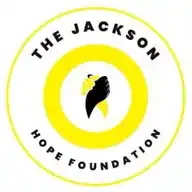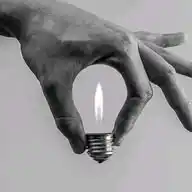
Kin2 The Rapper — Recovery, Guidance To Overcome Addiction, Sobriety
54 subscribers
About Kin2 The Rapper — Recovery, Guidance To Overcome Addiction, Sobriety
A writer, a poet and a rapper who overcame addiction to alcohol and drugs in 2012. I’m very passionate about passing on the hope I have in absolute sobriety to all those struggling with addiction, most especially to substances. I’m inspired to share the love, the hope, the healing, the restoration, the growth and the redemption of Jesus with all every day. https://kin2therapper.com/
Similar Channels
Swipe to see more
Posts

I’m thankful that I have made it through today sober. One of the things I’m most thankful for is the grace that has enabled me to develop a resilient internal support system. Through the practice of prayer, surrender and embracing solitude, I rely less on an external support system for my recovery. I’m thankful to Jesus that I’ve made it through sober today.

DROP ZONE PUB -PART 4 – A SET ROAD: MY INEVITABLE SLIDE INTO ADDICTION; In blacking out more, I did crazy and weird things. Those I hanged around with at Garden City started keeping away. Repeatedly, I was bounced out of a club Rouge, and Bubbles O’Learys. Denying and shelving the root issue that my drinking was out of hand, I resorted to what most alcoholics do. That is finding somewhere else where I would be tolerated. Enter Drop Zone Pub. It was near home. The assurance that in spite of a blackout—somewhere, somehow, I would find my way home—loosened any restraints I had left in drinking too much. I wasn’t afraid anymore of blacking out far from home. The bar was frequented by people I grew up with. Initially, they were happy to see me and bought me drinks. When they caught on on the way I drank eventually, they too began withdrawing. They withdrew at a much slower pace than those I hanged around with at Garden City.… https://kin2therapper.com/drop-zone-pub/

THE CIGARETTE EFFECT – PART 6 – A SET ROAD: MY INEVITABLE SLIDE INTO ADDICTION; In my quest to get drunk pretty fast, I experimented with much. The first was drinking on an empty stomach. The second was never drinking beers but spirits and liquors. The third was not eating meaty stuff before drinking, for, it would delay the high. Smoking a cigarette while drinking got me there fast. I recount smoking my first cigarette with Denton at Garden City. The earliest recollection I have of smoking something close to a cigarette is in my childhood. I bundled up tea leaves in a paper and lit it up. I might have picked up this idea from observing my uncle smoke, or from my mom—my memory is faint when it comes to that—or Wagaba, the caretaker who was looking after my cousin and I when young. Years down the road, I would hang with Wagaba in Drop Zone pub. He takes much pride in raising me and calling him dad lights him up. In… https://kin2therapper.com/the-cigarette-effect/

Many times, we have given in. But as we surrendered more to God and availed ourselves to recovery, we realized strength and were able to hold our forts where previously, we gave in. This growing strength grows on us as we grow in humility (depending more on God rather than self), honesty (being vulnerable and seeking support) and hope (it too will pass). Inspired — Motivated — Determined to Stay Sober

JOKERS AND MARIJUANA – PART 3 – A SET ROAD: MY INEVITABLE SLIDE INTO ADDICTION; It was one of those Friday nights I was out at Garden City that I met some friends. They asked me to tag along to Jokers. Jokers was a bar in Wandegeya, Kampala, Uganda. It became a habit to go to Jokers every Friday and some Saturday nights. A couple of friends would go in a secluded spot behind the bar and smoke weed. I joined them at times. This reveals a lack of belonging, a low self-esteem and seeking empty validation. They smoked marijuana and other drugs. I always wondered why they did. I tried a few puffs but never inhaled it, having no effect on me. For a while, I thought it was pointless to smoke it. One Saturday, Marvin passed on a blunt and he told me to inhale it. This Saturday, a seed was sown in me that changed me. A few moments passed after inhaling and I started laughing uncontrollably. I did some push-ups with the new… https://kin2therapper.com/jokers-and-marijuana/

THE COUNTRY CLUB – PART 5 – A SET ROAD: MY INEVITABLE SLIDE INTO ADDICTION; As Fridays and Saturday nights were for going out and drinking, Sunday afternoons were for the Country Club, playing basketball and later on, as I slipped deeper into addiction, drinking and smoking marijuana. I did not like spending time at home on Sundays. So I’d go to the country club. At the country club, I’d spend time in the TV room, or on the courts, and eventually as my drinking got worse, made a mess of myself trying to say something to the people I met there. It is one place I was never bounced out of. This strikes me as unusual. My drinking got so bad to a point that I was bounced out of every high-end place. Playing football with Tash, we always used to joke saying, “overdose,” bursting out in laughter. Yvonne was a good friend to me. At the country club one evening, she sat up on the roof as she contemplated to jump over. She… https://kin2therapper.com/the-country-club/

FAMILY DYNAMICS – PART 7 – A SET ROAD: MY INEVITABLE SLIDE INTO ADDICTION; I am an only child. My mother has only me. On my father’s side, I have other brothers and sisters. I did not spend much time with them growing up. At most, I spent 4 years with them. I am 39 now. Being an only child played out in my addiction and with an increasing measure, it has played out in my recovery. On my mother’s side, I grew up with my cousins and my mother’s brothers, my uncles. You could say that I was undisciplined and rebellious because I never had a present father in my life. This is oft true in most cases. In the brief stints of stay with my dad, there are certain things that played out. I was selfish and inconsiderate of my siblings. One day, I ate half a loaf of bread before breakfast. Dad pointed out that growing up as an only child, it was the reason I struggled with considering others. That’s one of the times my father… https://kin2therapper.com/family-dynamics/

DETERRENTS TO RECOVERY; The first deterrent to recovery is denial. Denial is the opposite of acceptance. A person in denial will be blinded to the fact that they have a problem. They might have lost it all but still do not perceive it that there is an issue. I have visited rehabs and met some who still do not think that they have a problem. By the time a person can be sent to rehab, this reveals that there is a very big problem but a person in denial won’t see this. Denial is a great deterrent or block to recovery. A person in denial projects and deflects. These are defense mechanisms where a person passes on the blame to their friends or family or their environment but never themselves. This person points all the fingers to others yet in recovery, your fingers should always be pointed at you who needs it most if you are to get the most out of it. In meetings, people normally introduce themselves as alcoholics or addicts. Those outside think that they are labelling themselves as alcoholics or addicts but that is not the case. Introducing myself as Mike an alcoholic is introducing myself as Mike who accepted that alcohol was a problem that I was powerless over. A person who is in denial will have a hard time confessing that they are an alcoholic or addict. When a person is in denial, two things can snap them out of it. Either a spiritual awakening or a very painful encounter with rock bottom. The best thing you can do for someone in denial is never to have a back and forth with them but pray for them. Prayer will remove the emotional and spiritual blinds and will enable them to start seeing things clearly. The second deterrent or block to recovery is pride. People that struggle with addiction are normally very smart, talented, gifted and have very big egos. We at times have strong reputations of solving some problems that challenged most folk and often times are deluded into thinking that this too, surmounting our addiction is a problem we will easily solve. We end up relying on our intellect, our willpower and our knowledge to beat this habit and we are very resilient in using our will, our intellect and knowledge to overcome it in spite of the many times we have tried to in vain. It never hits us that doing the same thing the same way will always get us the same results. We never try a different approach because we don’t want to admit that we have been licked. We seldom accept defeat. Much time is spent trying to defeat the habit by doing the same thing and that’s trying to control it and it always beats us at its level. Pride delays or deters or entirely blocks our recovery. Some of us have much faith in our resources and we exhaust them in trying to find a way to overcome the habit but still hit many dead ends when we follow this path obstinately. Pride in your willpower, connections, past achievements, special gifts or abilities or gifts will never suffice when it comes to addiction. Humility is the key when it comes to recovery. When I see the one struggling with the addiction talking more than the person who has experience in overcoming it, I sense pride and I sense that that person is not ready yet for the help they need. The teacher always comes when the student is ready. The third deterrent or block is fear. The question most people who want to quit a habit ask is, “what am I going to do when this is out of the way?” Some are beaten into submission to maintain the status quo. Questions like, “will I get new friends when I quit this habit? How will I find new acceptance elsewhere? I have got a sense of belonging here where I’m at (this is very common around people who use heroin who hang around the place where they can easily get a fix) and I’ve gotten an identity and some kind of protection- will I get all that in a new place?” Fear has the ability to and can appeal to reason and speaks one into settling for less when one entertains an inner dialogue with it. It will give you reasons, very logical ones why you should maintain the status quo. Some derive their identities and sense of belongings from habits like drinking. I’ve had people reason that they get deals from bars which is partly true but not entirely. Fear will speak to you and tell you that it is impossible to reinvent yourself. The antidote to this is faith. Faith grows. When your faith is still young, you have to be around those whose faith is high. When your faith is at getting 10k a day, be around those whose faith is getting a hundred thousand a day. This is where it pays to keep the company of those in recovery. Your faith will grow. Where you thought that it is impossible to go days without drinking or using, you will meet and get inspired by someone who has spent years.

I don't take each day I am sober for granted. I'm thankful for being sober and sane today. There are many things we encounter daily that are extremely triggering. The odds are set against us in having a history of addiction, but rising above daily triggers is something to be thankful for. Thank you Jesus for keeping me sober today.

Humbled❤️











